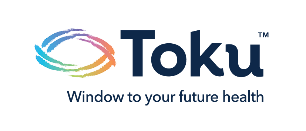2024 Awards Finalists
The KiwiNet Awards celebrate heroes in research commercialisation — those individuals and organisations whose best practice approach is changing the innovation landscape in New Zealand. We congratulate the 2024 finalists!
Momentum Student Entrepreneur Finalists
This award recognises a highly motivated university student who looks beyond the science and sees the prize - how their idea can change the world. The student is making outstanding contributions to business innovation or has created innovative businesses in New Zealand through technology licencing, start-up creation or by providing expertise to support business innovation.
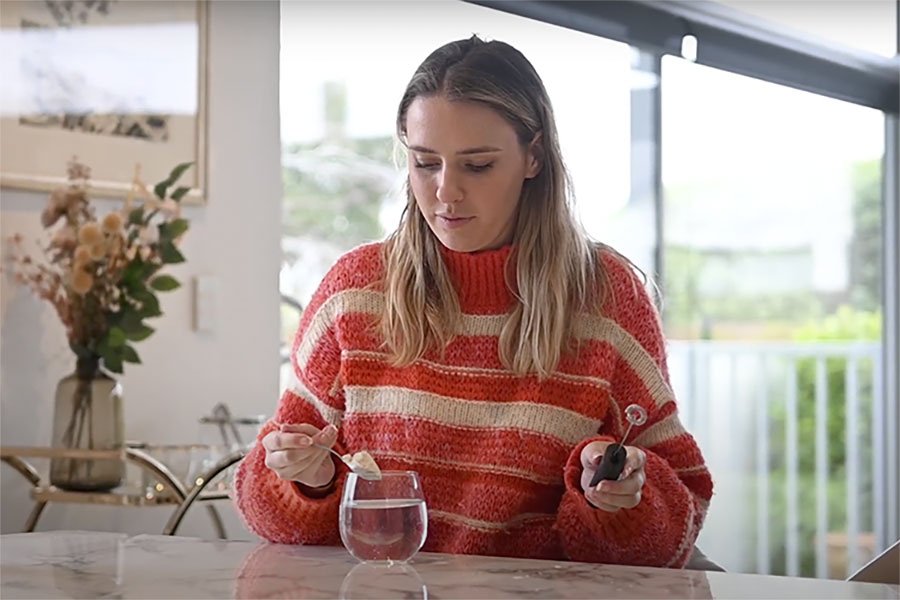 Emma Arvidson
Emma Arvidson
– Teiny / University Of Canterbury
High protein oat milk powder – small changes, big impact
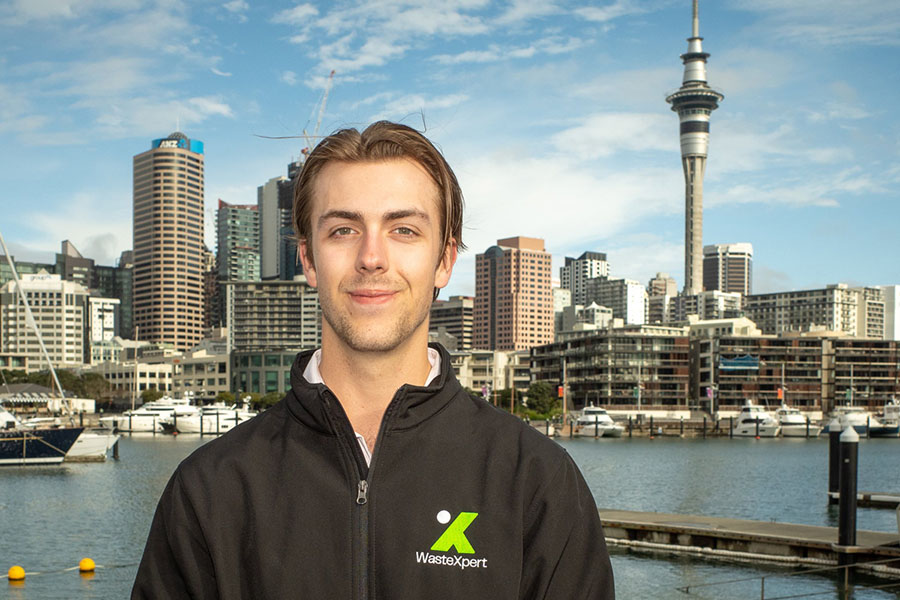 Jean-luc Ellis
Jean-luc Ellis
– WasteXpert / University of Auckland
Reducing construction and demolition waste and excess expenditure
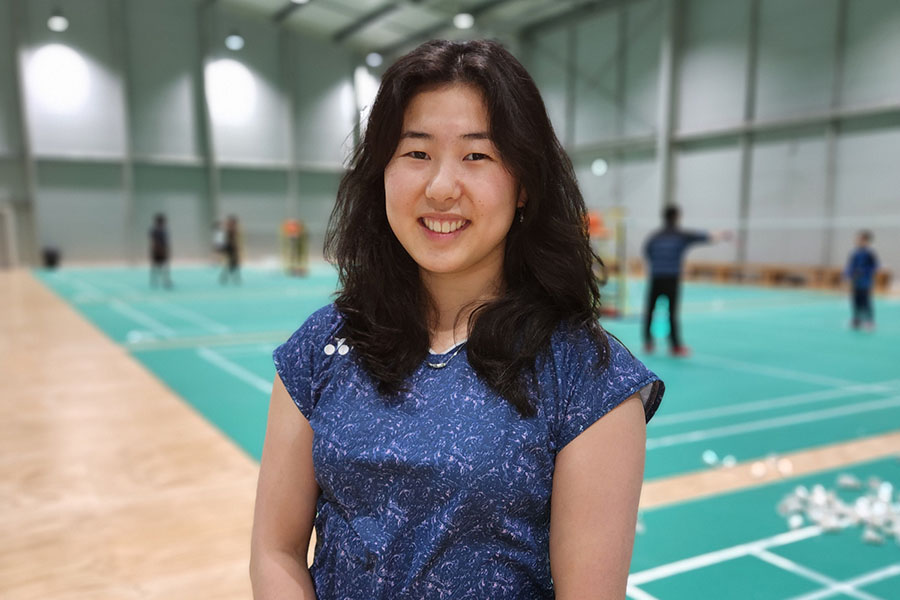 Jenny Zhu
Jenny Zhu
LineBuddy / University Of Canterbury
Umpiring ball monitoring tech for accurate line calls
Emma Arvidson: Teiny / University of Canterbury
High protein oat milk powder – small changes, big impact
Emma Arvidson is a chemical formulation design specialist, currently pursuing her master's in product innovation at Te Whare Wānanga o Waitaha | University of Canterbury (UC).
For her capstone project, to demonstrate knowledge and expertise for her thesis, Emma developed a high-protein oat milk powder that bridges the gap between the nutritional benefits of dairy and the sustainability of oats. Recognizing the potential of her creation, Emma co-founded a startup to bring this innovative product to market.
Under her leadership, the company has gained significant traction. They have successfully secured $20,000 KiwiNet PreSeed Accelerator Funding (PSAF) and $5,000 funding from the King's Trust He Kākano, a seed fund for young entrepreneurs aged 17-30 years. They were also a finalist in this year’s Foodstuffs Emerging Supplier Competition. In September 2024, Teiny secured investment from The Climate VC Fund (CVCF), the largest investor in its early-stage round to bring them to market, with further support from friends and family. These achievements highlight both the technical innovation and the market potential of their product.
Emma and her co-founder also earned the People's Choice and Impact Award at the UC Summer Start-Up, further validating their concept and approach. This reflects the strong resonance their product has with both consumers and industry experts, showcasing its potential for broad market appeal.
Emma's expertise in chemical formulation design has been instrumental in overcoming industry challenges, setting her product apart in a competitive market. Her strategic vision and commitment to sustainability resonate with consumers who value nutrition, convenience, and environmental responsibility.
Beyond her entrepreneurial endeavours, Emma was recently selected for the Asia New Zealand Foundation Leadership Network, reflecting her leadership potential and her dedication to making a broader impact. Her journey from concept to commercialisation showcases her ability to translate scientific innovation into viable business opportunities, positioning her as a rising star in the food innovation sector.

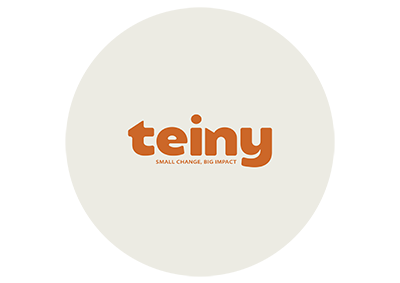
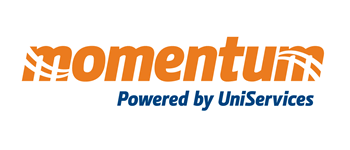
Jean-luc Ellis: WasteXpert / University of Auckland
Reducing construction and demolition waste and excess expenditure
Approximately 50% of Aotearoa's annual landfill contribution is from the construction and demolition industry—this equates to roughly 4.5 tonnes of waste per new-build house and about $30,000 in wasted materials and removal costs.
JJean-Luc Ellis is the co-founder and managing director of WasteXpert™, a start-up working to divert construction and demolition waste from landfills and reduce excess expenditure on all-sized projects; this is done by empowering customers with tools and knowledge to manage resources responsibly. WasteXpert provides consulting services to streamline waste-management processes, on-site waste management strategies to reduce waste streams and minimise carbon footprints, and a data tracking platform: WasteX™, a bespoke waste forecasting, tracking, and reporting software that can deliver waste data insights in real-time.
Jean-Luc, currently pursuing a Bachelor of Laws at Waipapa Taumata Rau, University of Auckland, founded WasteXpert in 2023. His background in the construction and demolition industry began through his first business, ERC Contracting, which he started in 2021. The contract labour-hire company that also specialises in sustainable deconstruction has a team of 25 contractors and has serviced over 100 clients. His time on the tools helped to develop WasteXpert systems that are practical, effective and easy to implement.
WasteXpert is actively diverting waste from landfill and saving clients money by reducing on-site material and waste costs. The company is proud to be a leading force in the waste battle; currently working with multiple councils across Aotearoa, large building material suppliers, and some of our largest construction companies. WasteXpert’s next goal is to continue spreading through Aotearoa while engaging with contacts in the UK and EU as they look to launch version 2 of the WasteX platform overseas.




Jenny Zhu: LineBuddy / University Of Canterbury
Umpiring ball monitoring tech for accurate line calls
Jenny Zhu is a recent graduate in Mechatronics Engineering from Te Whare Wānanga o Waitaha | University of Canterbury (UC).
Her unique background as a New Zealand representative badminton player and her passion for innovation has driven her to tackle one of the sport's most persistent challenges: unreliable umpiring. Jenny is the founder of LineBuddy, a startup dedicated to making advanced umpiring technology accessible to all badminton players.
Jenny's journey in badminton began when she was eight, inspired by her older brother who played before her. Determined to surpass him, she started playing socially at the local badminton club. She has since progressed from social to senior international level, making her deeply involved in the badminton community from the grassroots up.
Recognising that professional athletes benefit from advanced but expensive umpiring technologies, Jenny set out to create a solution that would be both affordable and convenient for everyday players. LineBuddy leverages smartphone technology and object detection to provide accurate line call feedback. By simply setting up a smartphone on a tripod behind the court, players can receive instant in-or-out decisions.
LineBuddy is currently in the MVP (minimal viable product) development stage, with hopes to impact other sports in the future, making fair play accessible to all.



Sprout Agritech Breakthrough Innovator Finalists
This award recognises an upcoming entrepreneurial researcher who is making outstanding contributions to business innovation or is creating innovative businesses in New Zealand through technology licencing, start-up creation or by providing expertise to support business innovation.
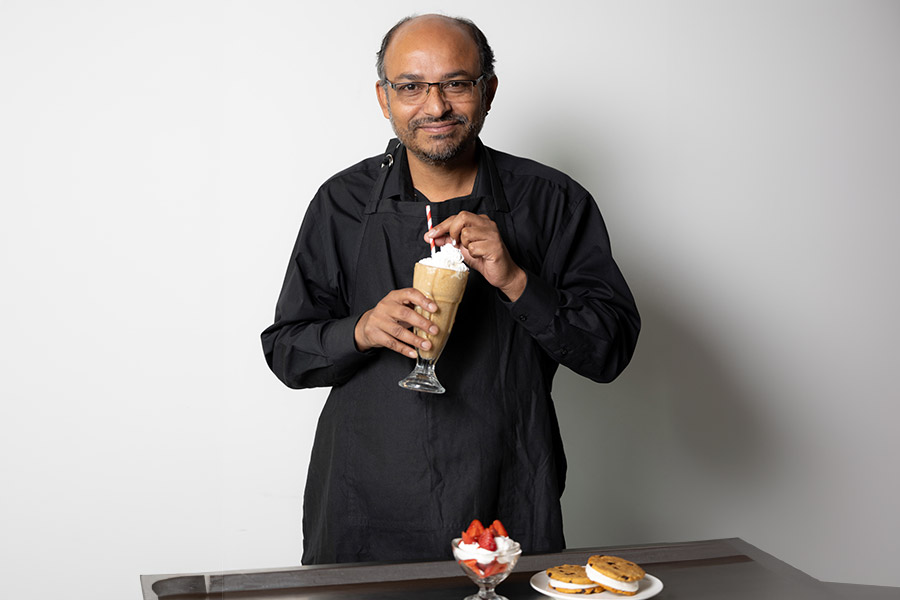 Dr Arup Nag
Dr Arup Nag
ANDFOODS / Riddet Institute / Massey University
Innovating tomorrow’s food today
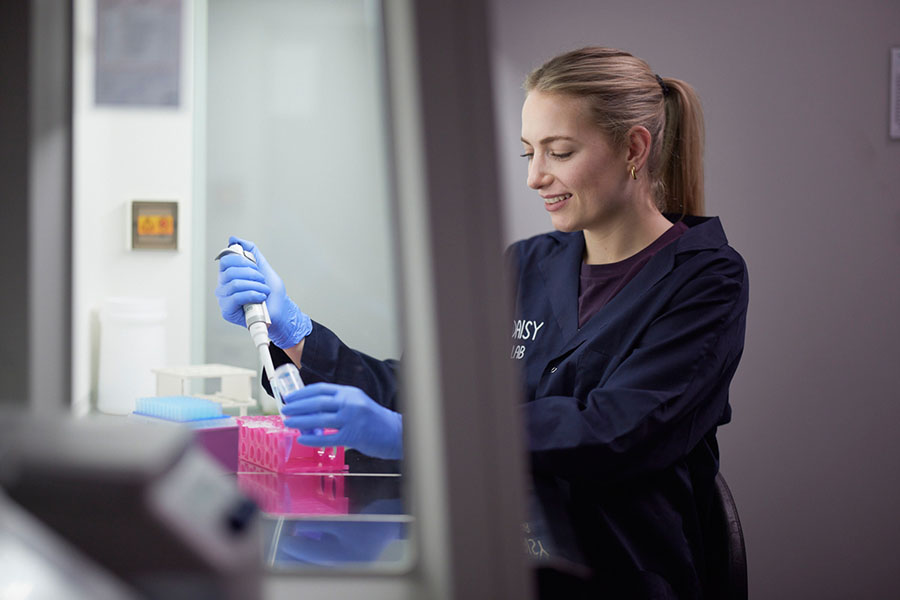 Emily McIsaac
Emily McIsaac
Daisy Lab / Massey University
Making dairy proteins – without the cows
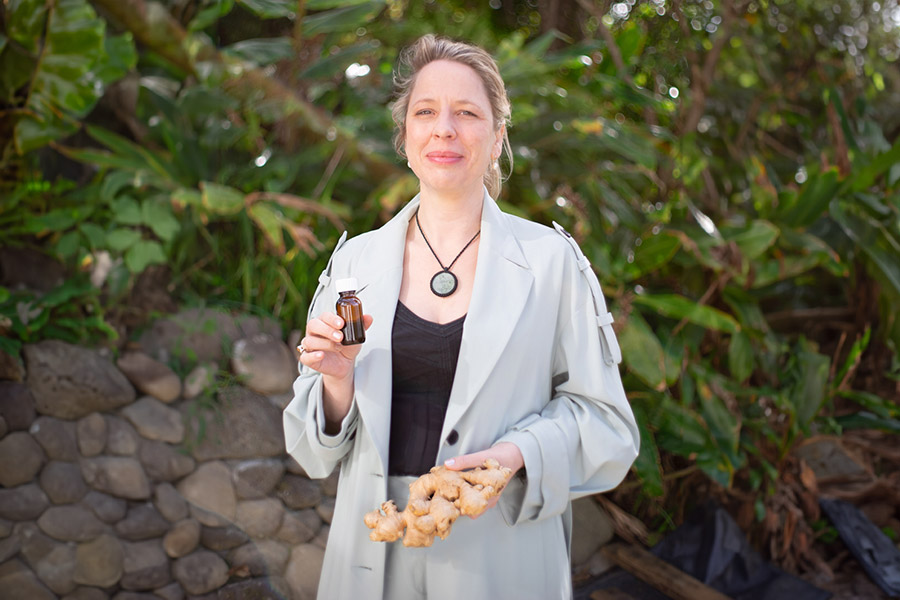 Cynthia Hunefeld
Cynthia Hunefeld
Evithé Biotechnology/ Victoria University of Wellington
Putting nature back into medicine with botanical drugs
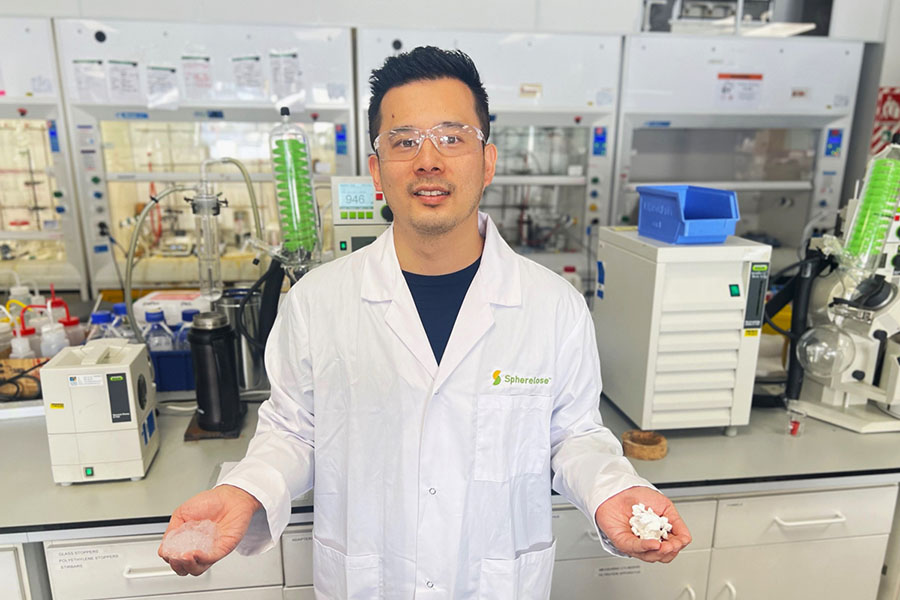 Dr Jack Chen
Dr Jack Chen
Spherelose/ AUT
Sustainable surfactants for a brighter future
Dr Arup Nag - ANDFOODS / Riddet Institute / Massey University
Innovating tomorrow’s food today
Blending industry experience with cutting-edge research, Dr Arup Nag is pioneering food innovations that address real-world challenges.
Shelf-stable probiotics, dairy-free cream and protein-packed alt-dairy cheese are among the products coming to market through Arup’s work. With over a decade in the food industry before earning his PhD at Te Kunenga ki Pūrehuroa Massey University, he knows what it takes to transform ideas into impactful technologies.
Arup’s first research breakthrough enhanced the long-term storage of probiotics, the gut-friendly bacteria used in food and beverages. This led to the creation of ProBioLife, a patented probiotic encapsulation technology that allows certain probiotics to be stored at room temperature, now licensed to Alpha Group.
As the first Food Innovation Manager at the Riddet Institute, Arup built a world-class team that developed a revolutionary processing technology for dairy alternatives, creating products like dairy-free creams, milk and powders from legume seeds.
This ingenuity led to the founding of alt-dairy ingredients spin-out ANDFOODS, which raised $2.7 million in an oversubscribed investment round in 2024. As CTO, Arup is helping steer ANDFOODS towards explosive growth, attracting the attention of major global food companies.
He is also championing the commercialisation of a novel protein solution for alternative dairy cheeses with mentee Debashree Roy. Unlike most plant-based cheeses, their dairy-free cheese boasts protein levels comparable to traditional dairy, without sacrificing taste or functionality.
Arup's passion for translating research into impactful solutions underscores his belief in commercialisation as a crucial pathway for publicly funded research to benefit society.



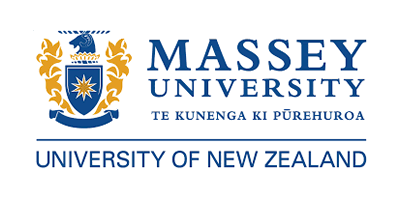
Emily McIsaac, Daisy Lab / Massey University
Making dairy proteins – without the cows
Auckland scientist and entrepreneur Emily McIsaac is leading a dairy revolution with her pioneering work in producing milk proteins without using cows.
As Chief Operations Officer and co-founder of foodtech startup Daisy Lab, Emily is driving the commercialisation of her Master’s thesis research from Te Kunenga ki Pūrehuroa Massey University, which focuses on producing bovine milk proteins using microorganisms.
This process, called precision fermentation, creates dairy-identical proteins that replicate the taste and texture of cow’s milk. This innovative technology significantly reduces the environmental impact of dairy, cutting greenhouse gas emissions by up to 96%, water use by 97% and land use by 99%. In addition, waste streams are used as a feedstock for the methane-free milk.
Emily’s expertise in molecular biology has been key in developing new methods to produce key dairy proteins like casein, lactoferrin and beta-lactoglobulin, resulting in a patented technology that offers a sustainable alternative to traditional dairy.
Emily's efforts extend beyond the lab. With a keen interest in business, she has developed her skills in operations and finance to navigate the commercialisation of her research. As Daisy Lab’s COO, she provides strategic and operational guidance and has built strong relationships with private sector stakeholders to help the company rapidly scale its operations.
In March 2023, Daisy Lab closed a $1.5 million seed round to scale up its microbial whey protein production to support its development of proteins using precision fermentation.
Emily is also dedicated to fostering innovation through collaboration. She works with research institutes across New Zealand on joint research projects and resource sharing, promoting a culture of entrepreneurship and knowledge exchange. Through her leadership and collaborative spirit, Emily is transforming scientific discoveries into practical solutions that will continue to drive technological and economic growth in New Zealand.

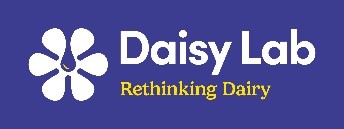

Cynthia Hunefeld - Evithé Biotechnology/ Victoria University of Wellington
Putting nature back into medicine with botanical drugs
Cynthia Hunefeld, founder and CEO of bio-pharmaceutical company Evithé Biotechnology, is combining modern science with traditional medicine to develop novel botanical and pharmaceutical prescription drugs that tackle some of the world’s most challenging health problems.
With a background in ethnobotany, clinical research and integrative medicine combined with extensive clinical experience, Cynthia brings a unique perspective to drug development.
Her interest in medicinal plants was sparked by a personal experience: helping her father survive an antibiotic-resistant infection with the support of a plant extract.
This led Cynthia to explore the development of new drugs, identifying and testing plant compounds that work together to help treat diseases, and researching new methods to enhance their natural benefits. Cynthia’s approach shows the potential of network pharmacology — using natural compounds to target multiple disease pathways simultaneously.
Driven to bring her research to market, Cynthia completed a Master’s in Innovation and Commercialisation at Te Herenga Waka—Victoria University of Wellington in 2020.
With the support of public funding and local scientists, she developed an intellectual property strategy and validated her model – laying the foundation for her start-up company Evithé to further raise private funding.
Wellington-based Evithé Biotechnology is now developing a pipeline of botanical and multi-target pharmaceutical drugs derived from ginger rhizomes. These botanical drugs are prescription medicines designed to address complex inflammatory diseases such as arthritis, Alzheimer’s and sepsis.
In just two years, Cynthia has led Evithé Biotechnology to remarkable success, including the development of two new drug candidates and securing three patents. She has also established practices for sustainable agriculture and commercial scale manufacturing, ensuring consistent pharmaceutical grade product quality.

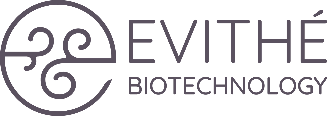
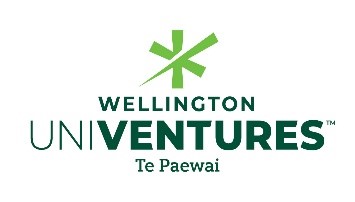
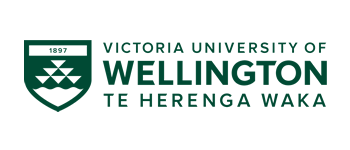
Dr Jack Chen – Spherelose/ AUT
Sustainable surfactants for a brighter future
Dr Jack Chen, a senior lecturer in chemistry at AUT, is making waves in the surfactant industry with Spherelose® — a groundbreaking technology platform derived from wood pulp cellulose.
Surfactants are essential compounds used to help mix oil and water, a property crucial in everyday products like cleaning agents, cosmetics, and personal care items. The world consumes 20 million tonnes of surfactants every year. They wash your hands, clothes, surfaces and car, protect crops, enhance foods, and help colour textiles — but they also flow into oceans and soil. Traditionally, surfactants are made from petroleum-based sources, which are unsustainable and non-biodegradable.
Jack’s innovation journey began with his research on turning gold nanoparticles into Janus particles, unique particles with two distinct surfaces that interact differently with oil and water.
Recognising the limitations of using gold, Jack pivoted to cellulose, a more abundant and eco-friendly material sourced from wood pulp. In 2019, he secured seed funding from the National Science Challenge as a Science for Technological Innovation (SfTI) project, which led to the creation of Spherelose - a revolutionary cellulose-based surfactant that is sustainable, safe, biodegradable and scalable. This research has since received support from the MBIE Endeavour Fund and the MacDiarmid Institute for Advanced Materials and Nanotechnology.
In 2021, Jack took a strategic approach to protecting the IP behind making cellulose Janus particles, with the support of AUT Ventures. He also secured SfTI Impact Acceleration funding in 2021 and KiwiNet Preseed Accelerator Funding (PSAF) in 2022 to support the commercialisation of his research through further testing, market validation, and engagement with industry experts.
In April 2024, spinout company Spherelose was founded to scale the technology from lab development to full-scale production. Spherelose is on a mission to disrupt the US$45 billion global surfactant industry with its greener alternative. The start-up is actively seeking venture capital to accelerate this transition.
Beyond his work with Spherelose, Jack continues to push the boundaries of green chemistry. He is developing a pipeline of innovative solutions to tackle pressing global challenges, reflecting his commitment to advancing sustainable practices and harnessing the power of science for a brighter future.





BNZ Researcher Entrepreneur Finalists
This award recognises an entrepreneurial researcher who has made outstanding contributions to business innovation or has created innovative businesses in New Zealand through technology licensing, start-up creation or by providing expertise to support business innovation.
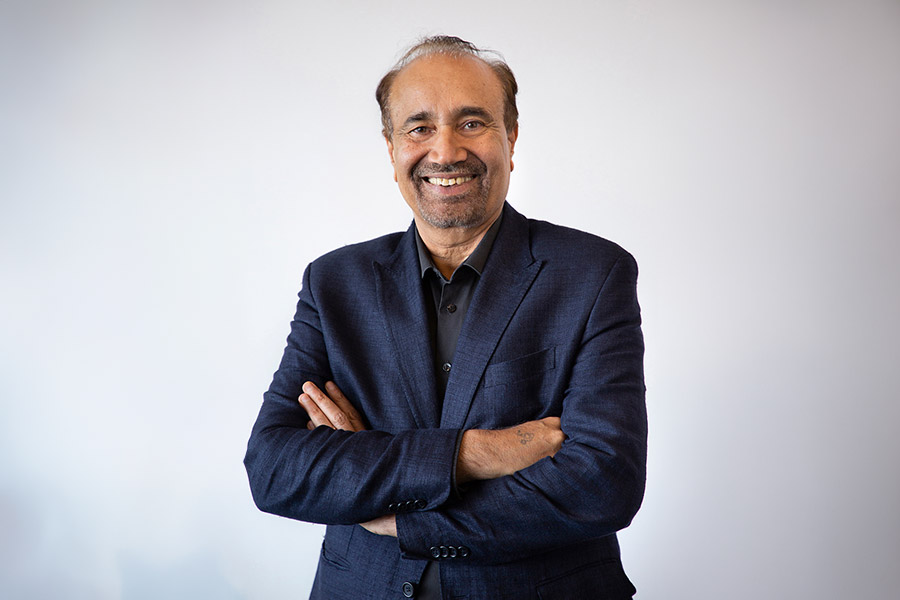 Distinguished Professor Harjinder Singh
Distinguished Professor Harjinder Singh
Riddet Institute / Massey University
Research entrepreneurship icon and food science leader
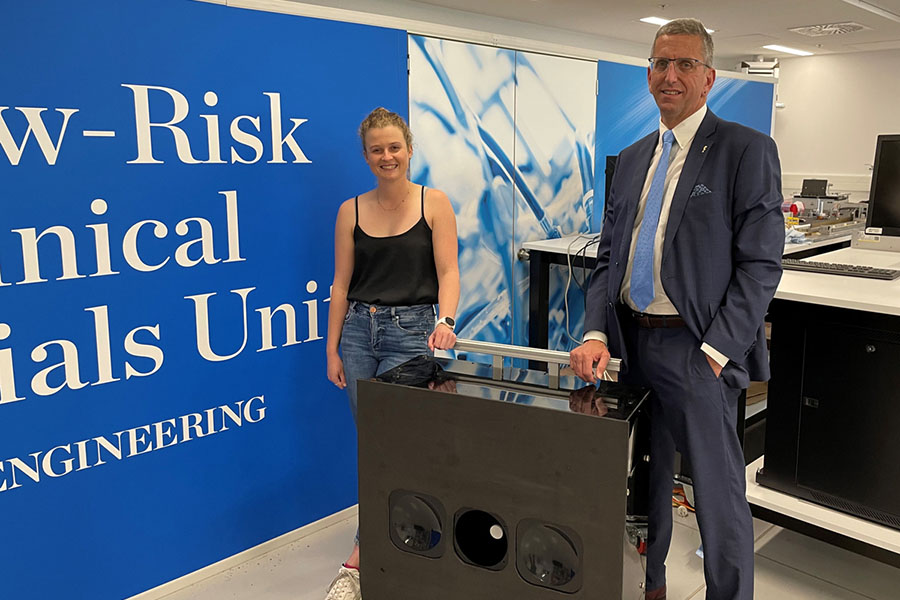 Distinguished Professor Geoff Chase
Distinguished Professor Geoff Chase
University of Canterbury
Engineering better medicine and a more resilient New Zealand
Distinguished Professor Harjinder Singh - Riddet Institute / Massey University
Research entrepreneurship icon and food science leader
Distinguished Professor Harjinder Singh has a remarkable record of translating scientific breakthroughs into tangible products with commercial and societal benefits.
Renowned for his pioneering work in food science, Harjinder is the inventor behind many of Te Kunenga ki Pūrehuroa Massey University’s most notable commercial successes.
A standout achievement is as a key inventor of Ferri-ProTM technology, a breakthrough designed to tackle global iron deficiency. This innovation was acquired by Nestlé in 2018 and recently launched in Pakistan, where it is already making an impact for the one-in-two children affected by iron deficiency. This deal remains Massey University's largest in terms of commercial value and societal impact.
With an impressive portfolio of 25 patents and several new projects in the pipeline, Harjinder’s influence extends well beyond the laboratory. His expertise has attracted collaborations with global food leaders like Danone, Pepsico and Goodman Fielder. Shelf-stable probiotics, milk proteins produced by Fonterra, licensed Omega-3 encapsulation technology and alternative dairy products are among the market-driven solutions made possible through Harjinder’s research.
In 2012, his achievements earned him the Prime Minister’s Science Prize, New Zealand’s highest science honour. More recently he was awarded the 2024 Institute of Food Technologist (USA) Lifetime Achievement Award in honour of Nicolas Appert - the first person in NZ/Australia to receive this honour.
Currently serving as Director of the Riddet Institute at Massey University, Harjinder continues to shape the future of food science. His dedication to mentoring emerging researcher-entrepreneurs reflects his belief in the transformative potential of commercialisation. By fostering the next generation of scientists, Harjinder ensures that his legacy of innovation and impact will continue to grow.


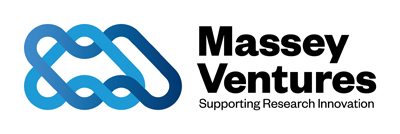

Distinguished Professor Geoff Chase - University of Canterbury
Engineering better medicine and a more resilient New Zealand.
Distinguished Professor Geoff Chase is a serial innovator disguised as a research-focused academic.
A mechanical engineering expert at Te Whare Wānanga o Waitaha | University of Canterbury (UC), Geoff is renowned for his applied research in high-tech automation solutions that address critical challenges in healthcare and earthquake engineering. His pioneering work ranges from intensive care medicine for babies to breast cancer screening, low-cost medical devices and seismic engineering.
Geoff’s commitment to both innovation and commercialisation is evident in the entrepreneurial spirit he has fostered within his research team. To date, he has inspired UC students to co-lead five spinout companies, with two more in development. Spinouts include Boundary Lifesciences and Intersection Lifesciences, which merged to become breast cancer screening technology company Tiro Medical, seismic control device company 2.2g-Force, and diabetes care company Tautoko Technology.
His protocols for glycemic (blood sugar) control in intensive care settings for adults and pre-term infants, based on his physiological modelling of human metabolism, are now standard clinical practice in several ICUs and NICUs in New Zealand, Hungary, Belgium, Malaysia, and beyond. The SPRINT and STAR protocols provide a novel ‘risk-based’ insulin dosing methodology that is unique in the world to improve patient safety and outcomes. The innovation has already saved hundreds of lives and millions of dollars for healthcare providers.
Additionally, his seismic devices have been deployed in two Christchurch buildings and a nine-storey social housing project in San Francisco, USA. The innovative quake damping devices are designed to absorb energy in a big earthquake and prevent building damage.
A named inventor on 12 patent families (with a total of 20 patents granted), Geoff has received numerous accolades for his contributions to medical technology and seismic engineering, including the Royal Society MacDiarmid Medal. His entrepreneurial spirit, combined with his clinical engagement and industry insight, has significantly amplified the societal and economic impact of his work.
Geoff's research not only advances critical technologies, but also nurtures and inspires a new generation of entrepreneurial researchers. By empowering young innovators to lead projects from inception to commercial success, he is shaping a future where New Zealand continues to benefit from a dynamic pipeline of talent dedicated to addressing global challenges through cutting-edge solutions.

KCA Commercialisation Rising Star Finalists
This award recognises an entrepreneurial early-mid career commercialisation professional working within a New Zealand research organisation who is actively supporting research innovations to generate significant real-world impact.
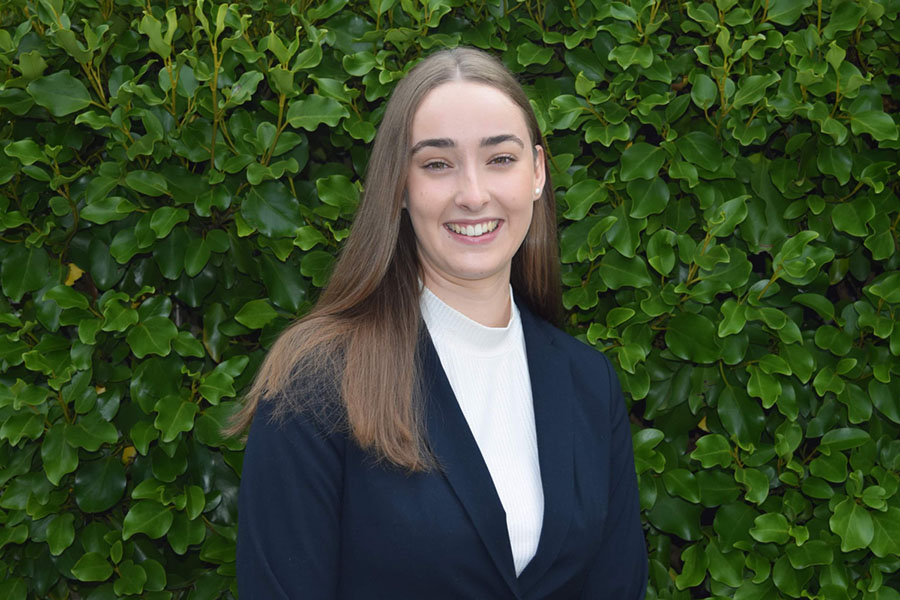 Ella Moffat
Ella Moffat
Massey Ventures
An emerging leader in the commercialisation ecosystem
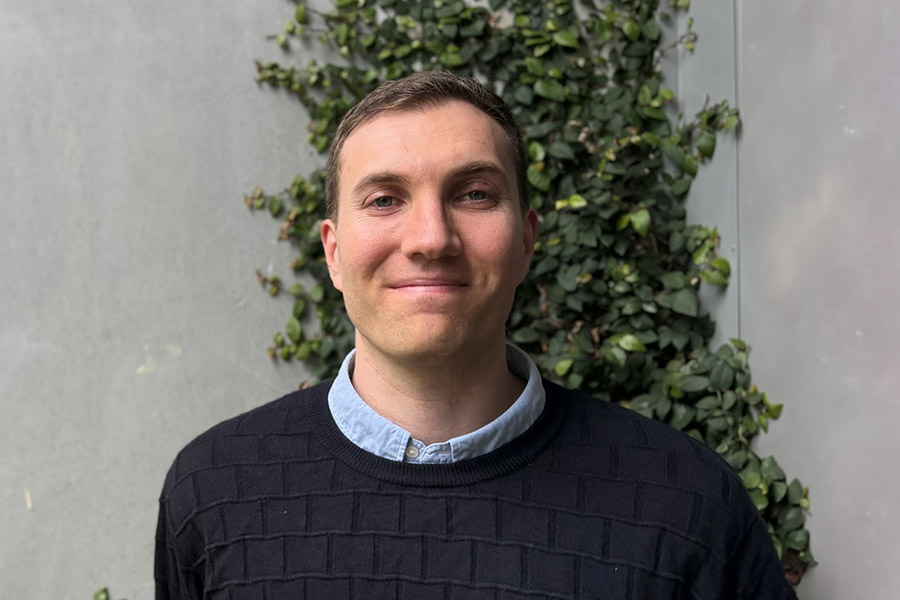 Ben Pearson
Ben Pearson
UniServices
Building connections and collaboration for exceptional outcomes
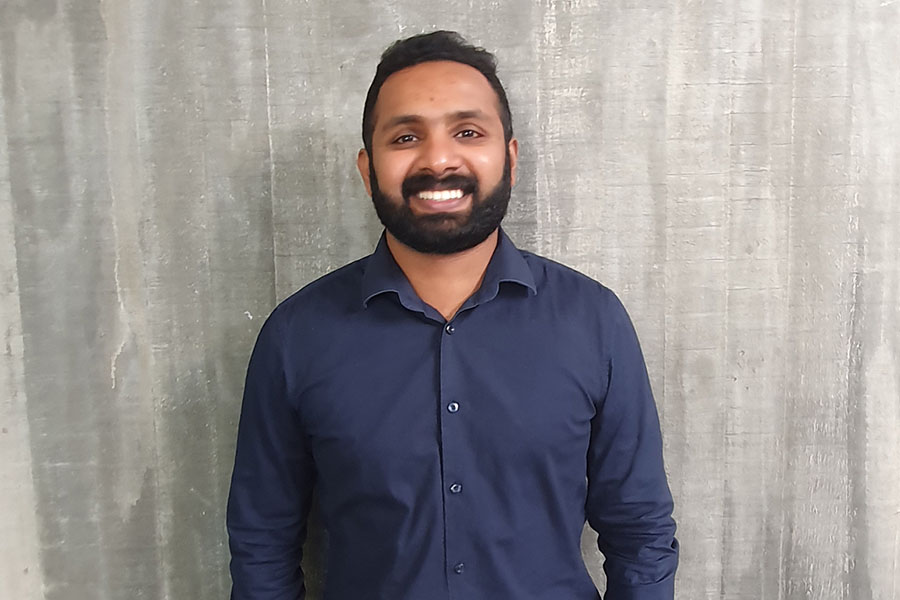 Abi Thampi
Abi Thampi
AUT Ventures
A highly effective and relatable commercialisation champion
Ella Moffat - Massey Ventures
An emerging leader in the commercialisation ecosystem
Ella Moffat has quickly emerged as a force in commercialisation at Massey Ventures. Starting as an intern in mid-2021, Ella’s swift progression to Analyst and then Commercialisation Manager highlights her innovative approach and commitment to professional development.
Just two months into her analyst role, Ella began managing her own commercialisation projects. Early in her career, she demonstrated her aptitude by taking the commercial lead on an industrial design project focused on improving cold-chain storage of temperature sensitive pharmaceuticals.
Today, she manages several projects in Massey Ventures pipeline, crafting IP strategies and leading discussions with local and international stakeholders. As Massey Ventures Portfolio Manager, she also oversees Massey Ventures’ portfolio of 16 companies.
Ella’s impact extends beyond her core responsibilities. One of her biggest achievements to date is pioneering New Zealand’s first Student Investment Fund at Te Kunenga ki Pūrehuroa Massey University, creating a platform for students to engage in commercialisation.
She also played a key role in establishing AgritechX, a collaborative network transforming the agriculture industry by challenging traditional tech-push models. AgritechX identifies opportunities to disrupt the agriculture sector, seed research and development projects, and validate the technology amongst the collective’s partners before commercialising and sharing the benefits.
Ella is at the forefront of creating new opportunities in commercialisation. She joined Nexus’ 2024 organising committee to support emerging leaders in commercialisation and set a precedent with her international tech transfer secondment to Louisiana State University. Her involvement with the Momentum Investment Committee, Chiasma Manawatū, and the US Embassy Youth Council, among others, further highlights her dedication to the field.
Ella's career to date is marked by her forward-thinking approach and dedication, setting a high standard for her peers. She is rapidly emerging as a leader in New Zealand’s innovation ecosystem, embodying the future of commercialisation leadership.



Ben Pearson - UniServices
Building connections and collaboration for exceptional outcomes
Ben Pearson is a powerhouse of commercialisation at Auckland UniServices, renowned for his ability to cultivate and leverage deep relationships with diverse stakeholders, including staff, students, faculty, industry partners, and investors. His creative and strategic approach has led to a substantial increase in idea disclosures and the successful launch of numerous ventures.
In 2023 alone, Ben's expertise was instrumental in the formation of six new companies—Nurox Hydrothermal, developing hazardous waste disposal technology; GaiaTech, a novel technology to capture waste anaesthetic gases; HEIA, identifying online threats and hate speech with data analytics; PhaseFoam, a revolutionary heat-absorbing material for the food cold chain and building industries; PlatformPi, a collaborative education system that bridges the gap between students, tertiary providers and the technology industry; and Frond Space Systems, offering deployable space technology and mission delivery solutions.
He adeptly guided the company founders through the startup journey, negotiating licences and key agreements, and facilitating crucial connections with funding sources. On top of this, Ben facilitated investment into three existing portfolio companies and conducted due diligence on 25 new ideas.
Ben has extensive contract and negotiating expertise, honed during his previous role as a Senior Contracts Manager at UniServices, in which he contracted over $50 million in research. His ability to seek win-win outcomes, even in challenging negotiations, and his creative problem-solving skills have earned him high praise from researchers, inventors, licensees and investors alike.
Ben’s successful track record is testament to his exceptional relationship skills, expert technical knowledge and innovative thinking. His contributions reflect a commitment to commercialising clever Kiwi science and finding effective solutions for mutually beneficial outcomes.

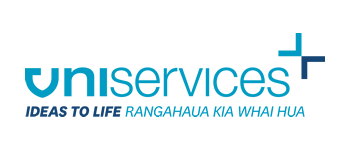

Abi Thampi - AUT Ventures
A highly effective and relatable commercialisation champion
Since joining AUT Ventures 2.5 years ago, Abi Thampi has rapidly emerged as a key player in commercialisation. Abi has managed over 15 separate projects, nine of which have received KiwiNet funding, with his current portfolio including two significant innovations that are being spun out into companies in 2024.
The first of these is Grappl, a software tool for visualising code in 3D. Under Abi’s stewardship, this project has evolved from a research concept to a promising spin-out poised for external investment. His strategic acquisition of funding at critical stages has been instrumental in achieving key milestones. With two new hires on board, Grappl is now embarking on the KiwiNet Spin-out Programme.
Similarly, Abi has played a pivotal role in commercialising Spherelose, a chemistry initiative creating sustainable surfactants from plant cellulose. Surfactants are essential compounds used to help mix oil and water, a property crucial in everyday products like cleaning agents, cosmetics, and personal care items.
Initially joining the Spherelose project in a support role, Abi is now leading its commercialisation, including leveraging external expertise to drive the project forward. The largest project in AUT Ventures’ history, Spherelose is set for tremendous impact as its sustainable surfactants offer an alternative to those traditionally made from petroleum-based sources.
Beyond Grappl and Spherelose, Abi is managing a portfolio of five other projects spanning the medical, sports and sustainable fashion categories.
Abi’s success is testament to his work ethic, passion, IP management expertise and ability to build relationships. Strong analytical skills combined with an interdisciplinary science background enable him to quickly grasp and leverage new technologies.
Abi’s work is accelerating innovative products and services to market while also laying the groundwork for future success. His proactive approach to building a robust project pipeline ensures he is positioned to achieve even greater impact.



PwC Breakthrough Project Finalists
This award recognises a project that demonstrates best practice commercialisation of publicly-funded research.
 ANDFOODS
ANDFOODS
Riddet Institute/ Massey University/ Massey Ventures
Breakthrough dairy-alternatives taking the world by storm
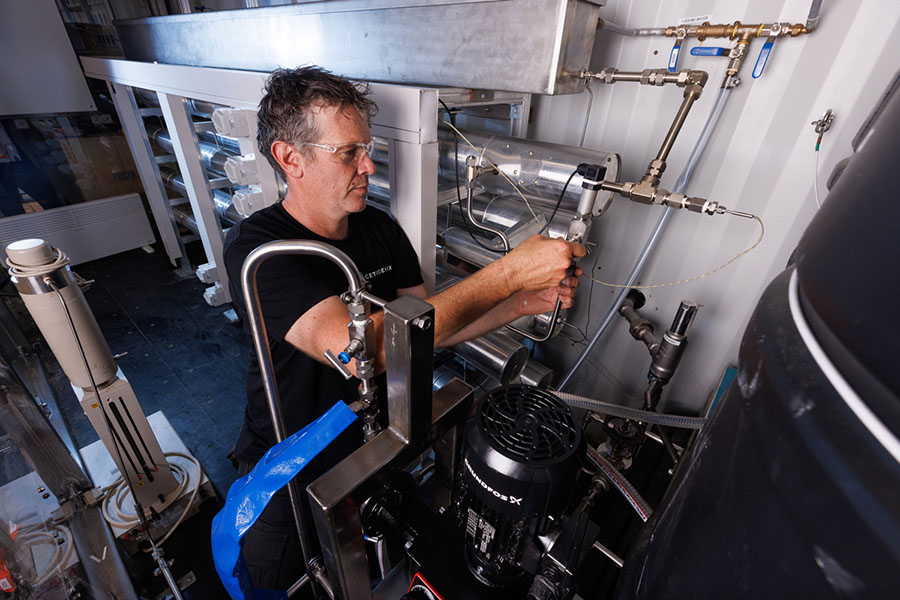 Cetogenix
Cetogenix
Pacific Channel/ Scion
Building renewable futures — with no waste left behind
 Kitea Health
Kitea Health
Auckland Bioengineering Institute/ University of Auckland
World-first implantable brain sensor set to transform patients’ lives
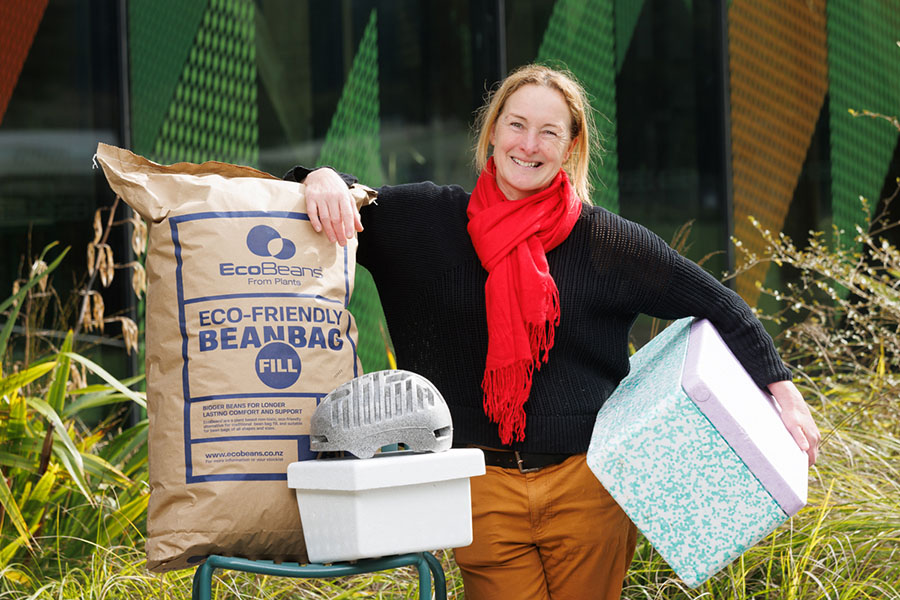 ZealaFoam®
ZealaFoam®
AgResearch/ Plant & Food Research/ Scion
Breaking the mould with sustainable plant-based polystyrene replacement
ANDFOODS
Riddet Institute/ Massey University/ Massey Ventures
Breakthrough dairy-alternatives taking the world by storm
ANDFOODS, a Massey Ventures spin-out, is redefining plant-based dairy with great tasting, sustainable dairy alternatives derived from legumes. Emerging from stealth mode in early 2024, the Palmerston North-based company raised an oversubscribed $2.7m seed round with Icehouse Ventures as the lead investor.
Developed through years of research at the Riddet Institute hosted at Te Kunenga ki Pūrehuroa Massey University, the company’s patent-pending technology transforms legume seeds into low carbon, allergen free dairy alternatives.
ANDFOODS’ flagship cream stands out in the market for its superior taste and performance, while its versatile powders and milks seamlessly substitute dairy in a wide range of recipes.
Instead of focusing on commercialising “another plant-based milk”, the Massey Ventures team identified the true value in the upstream technology platform. This approach led to a branded ingredient strategy that enables global food companies to easily substitute dairy in their product lines.
ANDFOODS has rapidly gained traction under the leadership of former Synlait CEO Leon Clement as Chair, new CEO Alex Devereux and CTO Arup Nag. In less than a year since its launch, the company has made significant strides in product development and formed crucial confidential partnerships with some of the world’s largest food companies that present an opportunity for ANDFOODS to create significant value.
ANDFOODS’ innovative technology positions the company for tremendous international growth, offering high-quality dairy alternatives that meet the demand of a USD$40 billion global market.




Cetogenix – Pacific Channel/ Scion
Building renewable futures — with no waste left behind
Each year, the world produces more than 100 billion tonnes of carbon-rich waste from food production, agriculture, sewage treatment and industrial manufacturing.
Clean tech startup Cetogenix has found a way to harness the untapped potential of this organic waste to generate renewable energy and other circular economy products.
The company’s Ceto-Boost™ system breaks down organic wastes and transforms them into valuable products like biomethane, fertilizers and biomaterials. Their patented process uses hydrothermal oxidation — leveraging temperature, pressure and air without any additional chemicals — to deconstruct waste with remarkable efficiency.
This novel approach reduces organic waste volumes by 95% and eliminates contaminants like microplastics and pathogens. Globally, it’s estimated Ceto-Boost™ could replace up to 12% of fossil natural gas production and cut greenhouse gas emissions by 884 million tonnes of CO2e annually.
The foundation of this innovation lies in over a decade of science and engineering research while the Cetogenix co-founders were working at Scion. They formed Cetogenix in July 2022 via a successful NZ$4.8 M capital raise with co-investment from Pacific Channel Limited, Angel HQ, Enterprise Angels, and Icehouse Ventures.
Since launching, Cetogenix has grown to a team of 12, who complement strong domestic and international R&D and commercialisation relationships. Within one year of founding, Cetogenix scaled up to a prototype Ceto-Boost™ pilot system in Rotorua, where they still maintain a strong collaborative research partnership with Scion.
The company is initially focusing on the global municipal wastewater and agricultural biogas markets and has confirmed pilot trials with end-users in New Zealand and the United Kingdom. Maintaining application flexibility and aligning their technology development and intellectual property with evolving market needs has proven crucial for success.
With its sustainable waste-to-resource technology, Cetogenix offers a powerful solution to the world’s reliance on fossil carbon — paving the way for a cleaner, greener future.



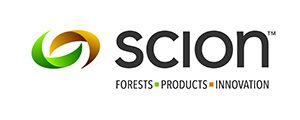


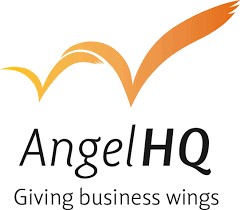
Kitea Health
Auckland Bioengineering Institute/ University of Auckland
World-first implantable brain sensor set to transform patients’ lives
Waipapa Taumata Rau, University of Auckland spinout Kitea Health is poised to transform the lives of people living with hydrocephalus through a groundbreaking new medical device.
The technology has been designed to help patients (often children) and their families deal with the uncertainty caused by the high failure rate of the shunts used to manage hydrocephalus, a condition involving fluid buildup in the brain. Traditional shunts have a staggering 50% failure rate within two years, but it’s often unclear if symptoms like headaches and tiredness are due to a failed shunt (and therefore buildup of pressure in the brain), or something more prosaic. This can lead to families making unnecessary hospital visits and is also a burden on the health system.
Kitea’s innovative solution enables proactive at-home monitoring of brain pressure, providing real-time data to guide clinical decision-making. The technology represents the first implantable medical device developed in New Zealand and the first time anywhere in the world a discrete sensor has been used within the brain.
In just two years, Kitea has transitioned from a research group at the Auckland Bioengineering Institute to a fully-fledged company, completing safety testing, scaling device production and securing approval for the first human trials. The spinout was supported by UniServices, the University of Auckland’s commercialisation arm, and propelled by a $5.7 million seed capital raise led by Pacific Channel.
This pioneering technology promises to revolutionise the management of hydrocephalus by reducing anxiety for patients and their families, lowering healthcare costs, and improving clinical outcomes. Throughout the development process, Kitea has taken care to involve the voices of patients and whānau to ensure the device meets the needs of its end users.
Kitea has built a robust intellectual property portfolio around its technology, ensuring this homegrown innovation will deliver economic benefits to New Zealand alongside significant healthcare advancements.

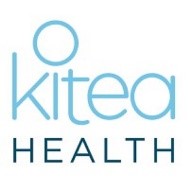


ZealaFoam®
AgResearch / Plant & Food Research / Scion
Breaking the mould with sustainable plant-based polystyrene replacement
Rotorua-based ZealaFoam® is setting a new standard in sustainable packaging with its innovative, 100% plant-based alternative to polystyrene. ZealaFoam mirrors the strength, lightness and insulative properties of traditional polystyrene – but is far kinder to the environment.
Using patented technology, ZealaFoam is made from Polylactic Acid (PLA) derived from plants such as maize and cassava. The raw material is not only more sustainably manufactured than polystyrene but also industrially compostable, making it more eco-friendly throughout its lifecycle.
Its journey began with the Biopolymer Network (BPN), a joint venture between AgResearch, Plant & Food Research and Scion focused on developing bio-based materials, with ZealaFoam emerging as the most commercially promising.
A key advantage of ZealaFoam is its ability to be produced using existing polystyrene equipment, avoiding the need for expensive new moulding infrastructure. Initial trials, supported by KiwiNet funding, validated its performance and feasibility on standard machinery.
Polystyrene, once the darling of the plastics revolution due to its cheap, lightweight, strong and protective attributes, has grown to a USD$30 billion per annum global industry.
ZealaFoam’s first commercial product on the market is EcoBeans, a sustainable beanbag fill available in New Zealand and Australia. The global beanbag fill market alone estimated to reach USD$882 million by 2025. Launching EcoBeans has paved the way for the broader deployment of its main product focus, moulded ZealaFoam. The company is now poised to enter the USD $3.6 billion cold chain packaging market, with plans to roll out its fish boxes in 2024.
Supported by recent investment and a robust patent portfolio, ZealaFoam is primed to meet the rising global demand for sustainable packaging solutions. Its licensee model ensures the technology ownership remains in New Zealand, showcasing Kiwi ingenuity while opening doors to international revenue streams.

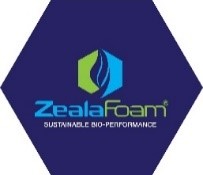

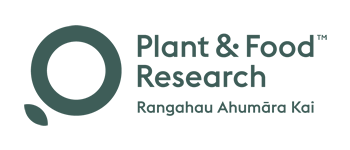

AJ Park Commercialisation Impact Finalists
The commercialisation impact award celebrates excellence in research commercialisation delivering outstanding innovation performance and the potential for generating significant economic impact for New Zealand.
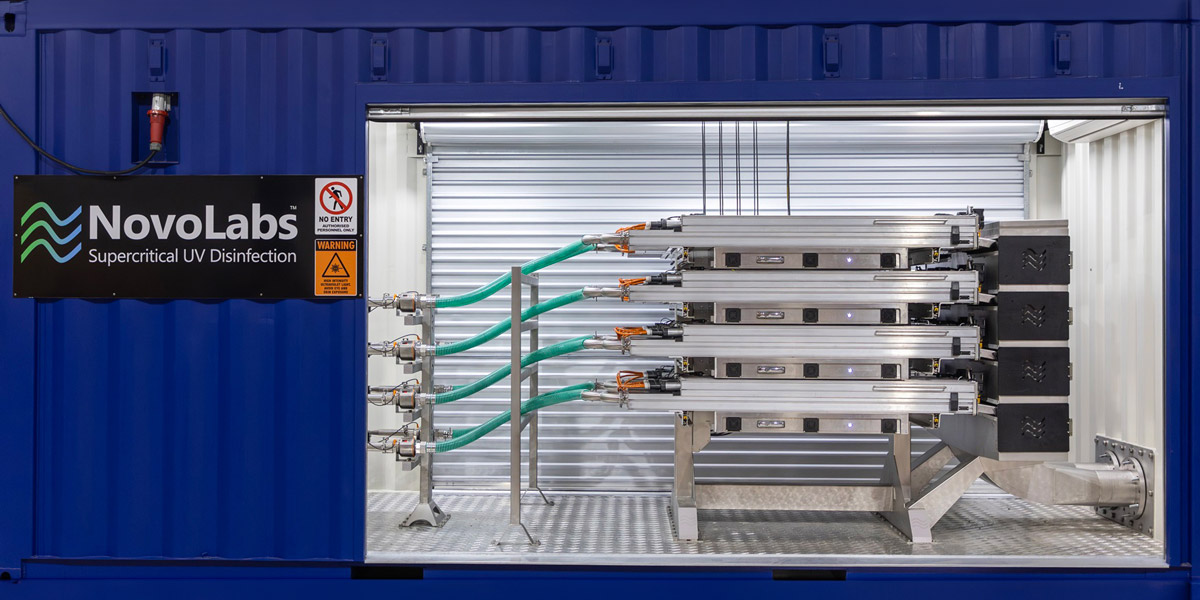 NovoLabs and Massey Ventures
NovoLabs and Massey Ventures
Advanced UV technology bringing cleaner water to the world.
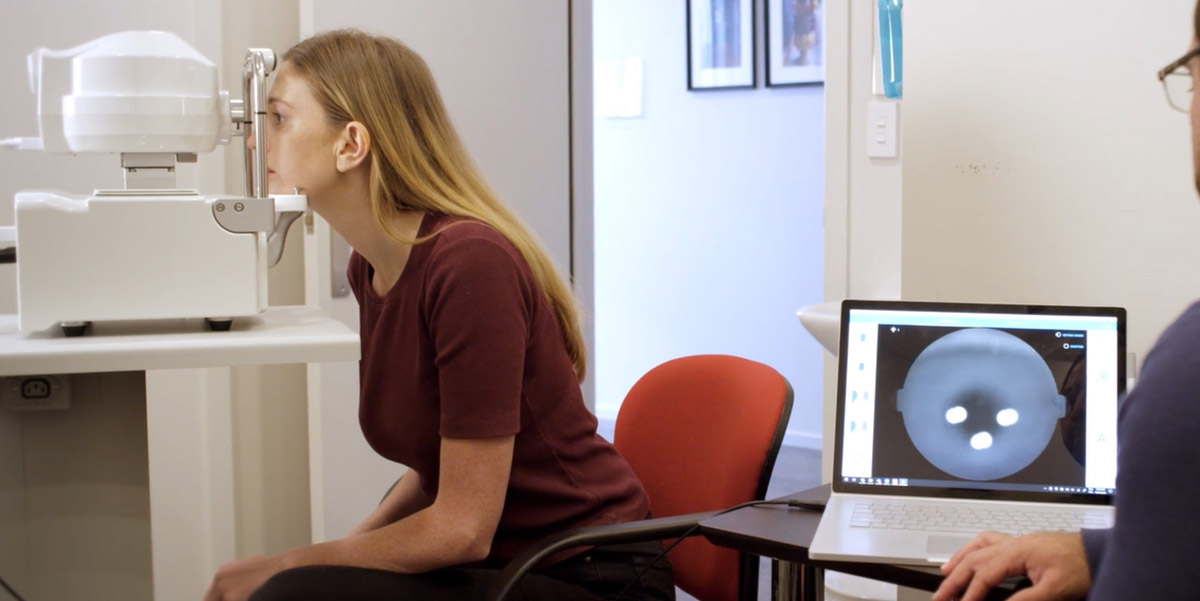 Toku Eyes and University of Auckland
Toku Eyes and University of Auckland
Medtech AI: Using the eye as a window to our health
NovoLabs and Massey Ventures
Advanced UV technology bringing cleaner water to the world
A New Zealand innovation is setting global standards in water disinfection with its groundbreaking Supercritical UV® technology. Born from decades of research at Te Kunenga ki Pūrehuroa Massey University, NovoLabs® has developed a unique approach to UV disinfection, making cleaner, safer waterways more affordable and more sustainable.
Supercritical flow, a rare type of ultra-thin and fast liquid flow, forms the foundation of NovoLabs' technology. By positioning UV lamps above a supercritical flow, the system enables high-intensity UV to penetrate through the liquid. This world-first design overcomes the limitations of traditional UV systems, which struggle with low-clarity liquids, and significantly broadens the scope of UV disinfection applications.
NovoLabs' technology has already achieved significant milestones, including patent protection in 28 countries, with a second patent pending. Since its spin-out in 2021, the company has seen impressive growth, securing a Series A investment with the Climate VC Fund in late 2023 amidst challenging market conditions. Their technology's ability to disinfect even ultralow UVT liquids at a 99.996% efficacy rate sets them apart in the $NZ8 billion global UV disinfection market, dominated by legacy players.
Beyond its commercial success, NovoLabs offers substantial environmental benefits. By providing a chemical-free and lower-energy alternative to other disinfection methods, their Supercritical UV system reduces carbon footprints and improves sustainability.
Already a major supplier of industrial UV within New Zealand, with 1.5 billion litres treated in commercial applications, and having launched in Australia in 2023, NovoLabs now has its sights set on scaling up and expanding globally. With a solid foundation and cutting-edge technology, the company is set to make an impact on the international stage.




Toku Eyes and University of Auckland
Medtech AI: Using the eye as a window to our health
Imagine if your next eye exam could save your life. Toku Eyes’ transformative medical technology could do just that, using artificial intelligence to transform routine eye exams into powerful early detection tools for chronic conditions like diabetes and heart disease.
Originating from groundbreaking research at the Waipapa Taumata Rau University of Auckland, Toku’s AI technology was initially designed to identify retinal diseases but revealed an unexpected capability: detecting underlying conditions like diabetes, chronic kidney disease and cardiovascular disease, the leading cause of death worldwide.
Toku's innovative technology analyses retinal scans during regular eye exams, offering a non-invasive and cost-effective method for early detection of chronic diseases. The platform empowers healthcare providers to identify potential health risks before symptoms appear, allowing for timely intervention and potentially life-saving treatments. According to the American Heart Association (AHA) over 80% of high-risk people with cardiovascular disease (CVD) are diagnosed when it’s too late. It estimates USD$175 billion in savings (from an annual cost of $555 billion) from a reduction in CVD events by implementing lifestyle changes.
Toku was founded by Ehsan Vaghefi, now an associate professor of Medical Imaging and Artificial Intelligence in Optometry and Ophthalmology at the University of Auckland, and Dr David Squirrell. Since its spin-out in 2019, Toku has raised more than USD$11 million in venture capital funding. Initially invested in by the University of Auckland Inventors’ Fund through UniServices, Toku is now backed by the US’ largest ophthalmic device manufacturer (TOPCON) and largest optometric retailer (NVI).
Toku’s focus on building strategic partnerships with industry leaders in the US has unlocked access to a vast network of 2,000 eye care clinics across the US, significantly expanding Toku’s reach and impact. With a move to San Diego in 2023, Toku is positioned closer to key industry partners and is integrating its technology into eye clinics and primary care settings.
Today, Toku Eyes' AI platform is being used in many clinics across the US, UAE, Australia and New Zealand. The company’s commitment to preventative healthcare and continuous improvement, including plans for integration with electronic health records, will ensure it remains at the forefront of AI-powered healthcare solutions.

